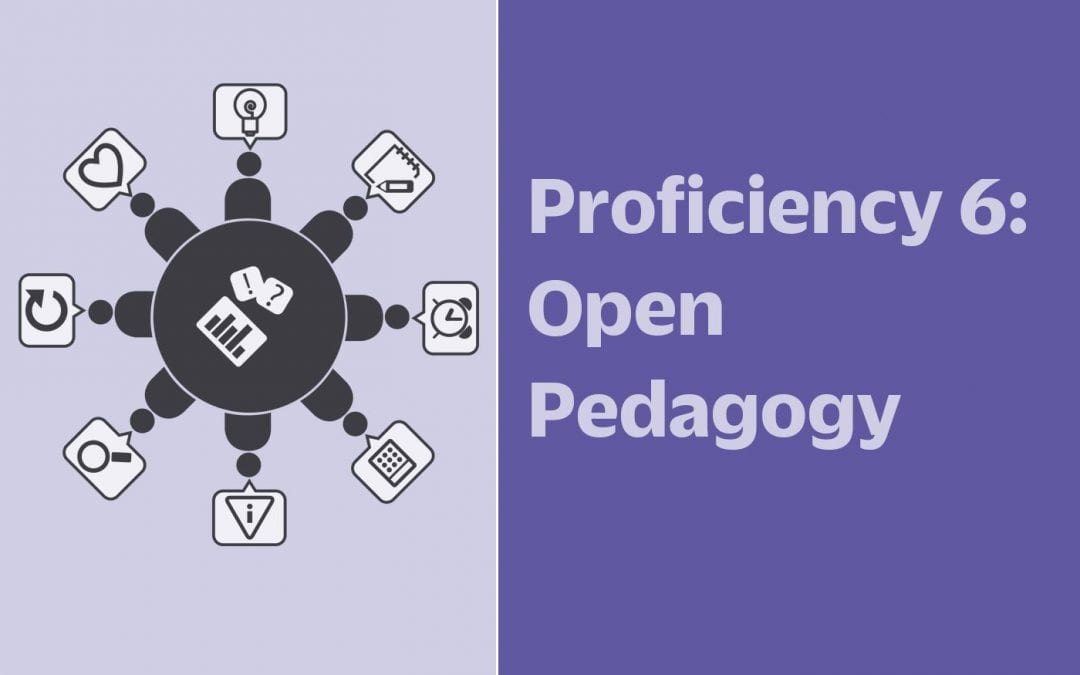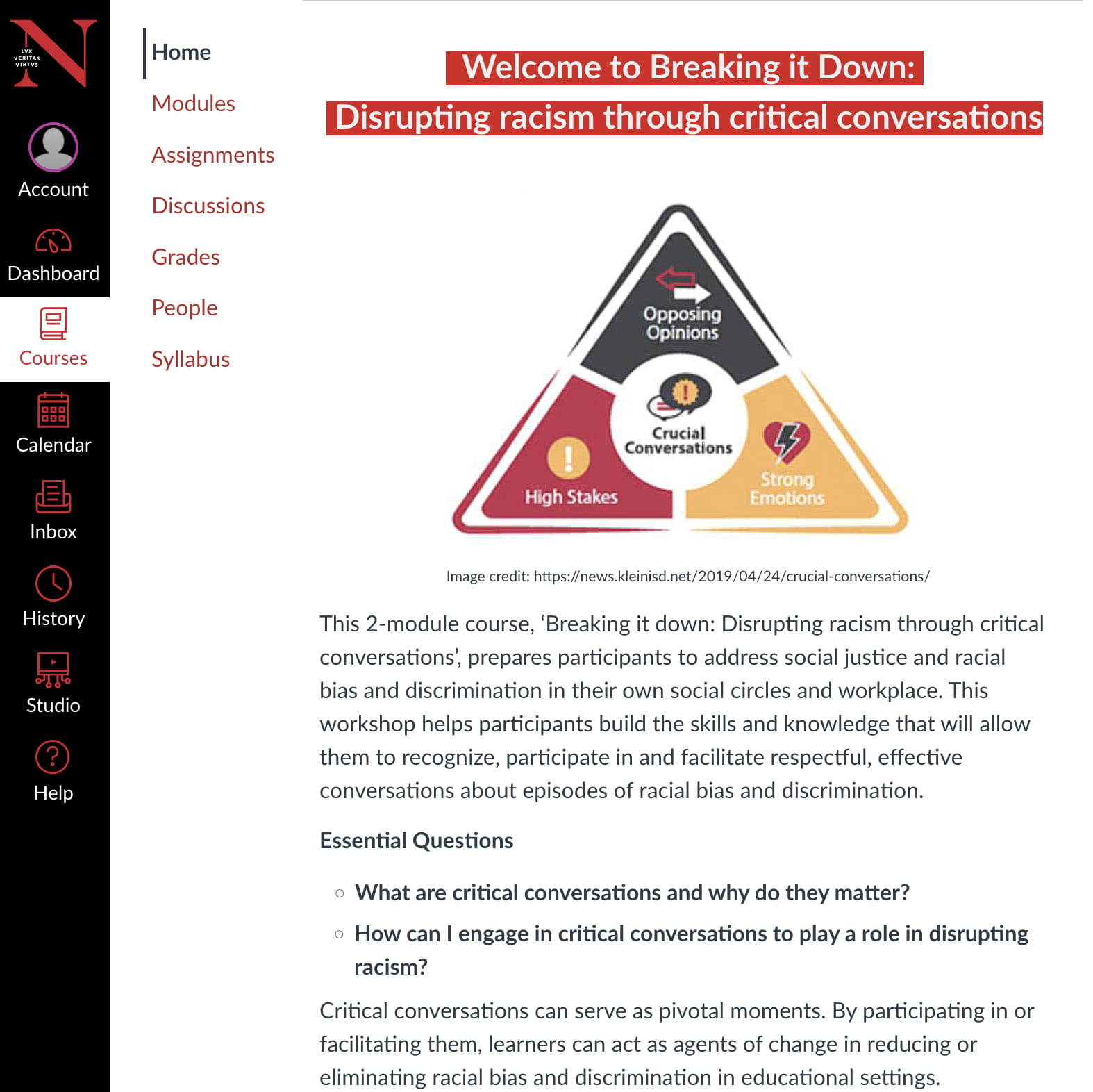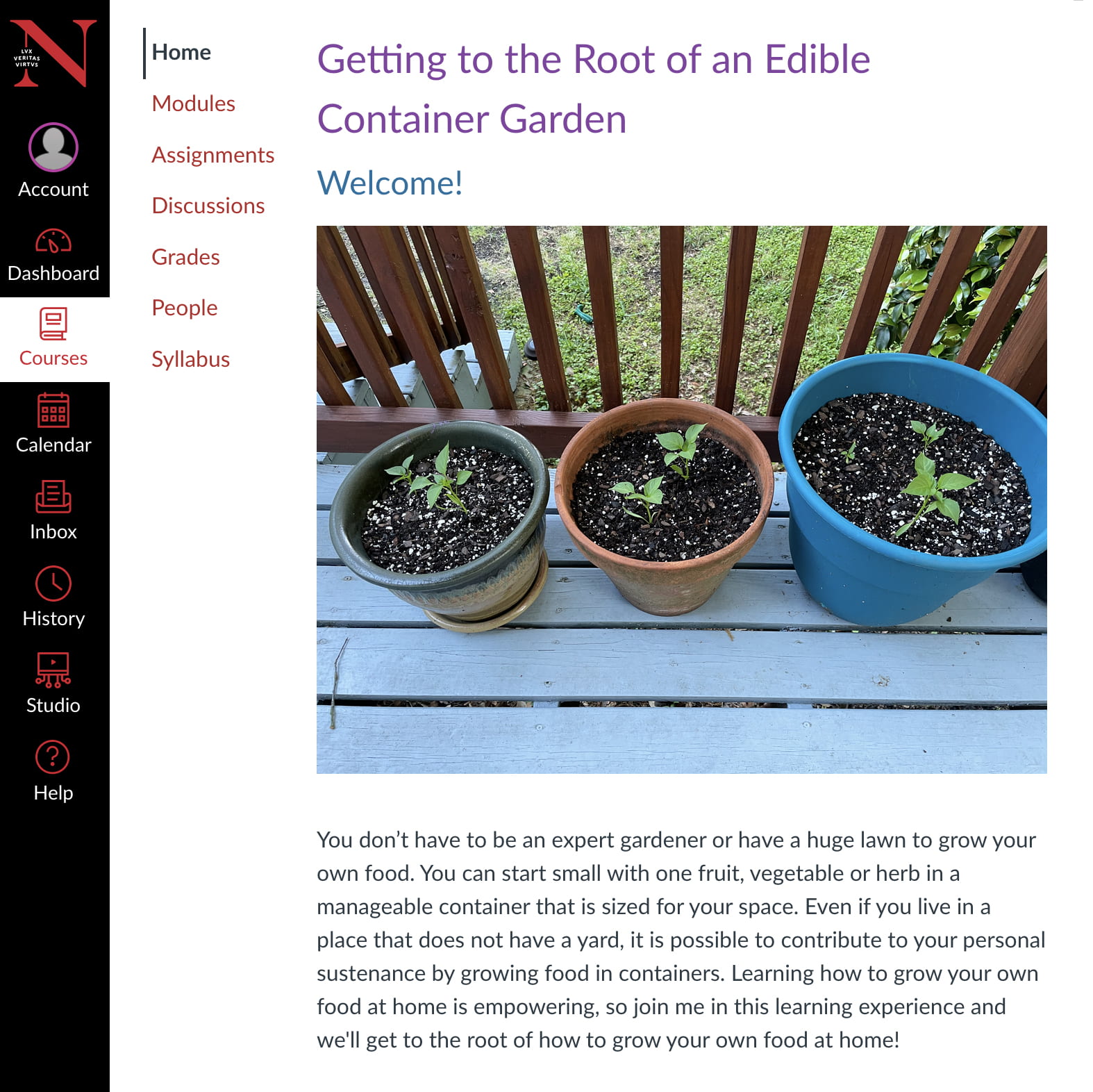Student Reflections
“This class’s format made us comment on each other’s work in a way that required the recipient to do something. I am not saying I had to make the changes, but I really had to reflect on the comments. As much as I want to say my biggest take away was making the MOOC, it really wasn’t. My biggest takeaway was the power of someone else’s point of view.”
Definition
Facilitate a two-week, active, online participatory learning experience that incorporates OERs and engages learners in the development of authentic products that can be shared with others (have value beyond the class).
Essential Understanding(s)
Roles between educators and student can be fluid; partnership increases a sense of mattering and empowerment. Teaching, and the improvement of teaching, is iterative.
For Further Reading
See two articles co-authored by the Open Learning instructor and a former student that explore the interpersonal dynamics and long-term impact of open pedagogy.
Cozart-Lundin, A., Matthews-DeNatale, G. (2021). Embracing opportunities for openness in online learning. Teaching and Learning Together in Higher Education, (1)32. Embracing Opportunities for Openness in Online Learning
Matthews-DeNatale, G., Cozart-Lundin, A. (2016). Students as bricoleurs: Eliciting creativity in a cluttered world. In K. Coleman and A. Flood (Eds.), Enabling reflective thinking: Reflection and reflective practice in learning and teaching. Common Ground. Chapter 16 – Enabling Reflective Thinking – 11-1-16
Sample Assignment: Mini-MOOC
- Individual choice of topic, selected during the same week when course participants explore OERs for the COOL Collection assignment
- Curation: Mini-MOOC content must include at least three forms of high-quality open learning resources that were created by another entity (e.g., materials, videos, tools).
- Learning Experience Design: Mini-MOOC process guided by a multi-week planner, adapted from the Backward Design planner developed by Wiggins & McTighe (2005)
- Education Technology: Stage the learning experience in a learning management system, set to self-enroll, or in another platform that is available to the public.
- Open Pedagogy: Mini-MOOC should model open pedagogy by fostering interaction between min-MOOC participants and actively engaging them in the development of authentic work products that can be shared beyond the course. Original materials authored for the Mini-MOOC should be assigned a Creative Commons license of the course author’s choosing
View The Assignment




This post is in fact a good one it assists new web viewers,
who are wishing in favor of blogging.
Here is my web blog … Magic Boom Bars Chocolate
I’m really impressed with your writing skills and also with the layout on your blog.
Is this a paid theme or did you customize it yourself?
Anyway keep up the nice quality writing, it is rare to see a great
blog like this one nowadays.
Here is my web site – Buy Adderall Online